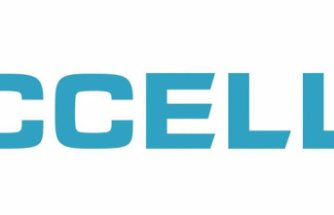Europe and the United States negotiate in Davos, Switzerland about the taxation of international companies. In the case of fundamental questions of dissent prevails.
Everywhere, googled, taxes, but only in the US paid photo: Ralph Peters/imago
DAVOS taz | At the world economic forum (WEF) in Davos will be guided in these days of far-reaching negotiations on the international taxation of transnational corporations. On Wednesday afternoon, Bruno Le Maire and Steven Mnuchin, the Minister of Finance of France and the United States, with José Ángel Gurría, Secretary-General of the Organisation for Economic cooperation and development (OECD), meeting wanted.
Superficially, it goes to the so-called digital tax, which will raise, among other things, the French government on revenues of Facebook, Google and co. In fact, far more fundamental questions, however, are on the agenda: Where should companies such as Google, Daimler, and Volkswagen to pay in future taxes? And an international minimum tax introduced?
In the case of the digital tax is a first relaxation was meanwhile. After his speech at the WEF on Tuesday gave U.S. President Donald Trump the impression that an early agreement with France is quite possible. According to the German press Agency, the French government is considering advance payments on the tax until the end of the year to suspend. Any attempts something to the other to move said Le Maire before the Meeting with Mnuchin. A trade war "would be stupid from an economic and a political point of view".
The government in Paris had decided to impose a new tax of 3 percent on turnover of digital companies such as Facebook, Google and Amazon, because of this high level of revenue in Europe, but primarily in the USA, or even not taxable. The U.S. government responded with the threat of punitive tariffs on French products, such as Roquefort, champagne, handbags and perfumes to introduce. Now, a little calm returned to first, where the digital tax could anyway from the table, it should come with the basic points of an agreement.
In the last week of January will entertain you in Paris, "more than 130 countries, up to a gross architecture for the distribution of international taxing rights in the context of the digital project", said Achim Pross, tax-head of the OECD, in the face of this newspaper. It is in the "pillar one" to the question, where export companies should pay tax on their foreign revenues and foreign profits in the future. Europe would like to have a few billion more from Google and co., the United States want to be to the income of the German car companies like BMW, Daimler and Volkswagen involved.
The solution could consist of tax revenues to re-allocate The Land in which the respective company headquarters, get a little less, the so-called market in the country where the transactions occur, while a little more. Which state benefited from, is difficult to calculate. But it could be that Germany would have been seen as a strong exporting nation, with a lot of foreign business certain loss.
But also in this question of dissent prevails. By the end of 2019 US Treasury Secretary Mnuchin expressed "great concern" and called for exceptions for American Internet companies. OECD expert Pross finds this is not surprising: "If it is serious, are the turbulence is not surprising." The U.S. government "supports the process, but examine what she gets through the Congress."
In "pillar two" of the OECD process, the idea of an international minimum taxation of companies. Not only the social-democratic Federal Minister of Finance, Olaf Scholz in mind that corporations, banks, and investors pay tax on their income in countries that lure you in with particularly low tax rates. This can be tax havens in the Caribbean, but also countries such as Luxembourg or the Netherlands.
Therefore, the OECD is aiming to agree on a globally accepted minimum tax rate. France's Finance Minister Le Maire proposed recently to 12.5 percent. Would be that an in Germany registered company with Foreign cheaper it comes, would tax the local tax office post. With this part of the target agreement, the US government has no Problem at all, because it has itself already introduced a similar minimum tax.
OECD Secretary-General Gurría said in Davos, to the press Agency AP that he expects a solution, because "a Plan B". He urged the actors to find a multilateral solution that could support the whole world. Then the bilateral confrontation "are" null and void.
Date Of Update: 22 January 2020, 18:00












